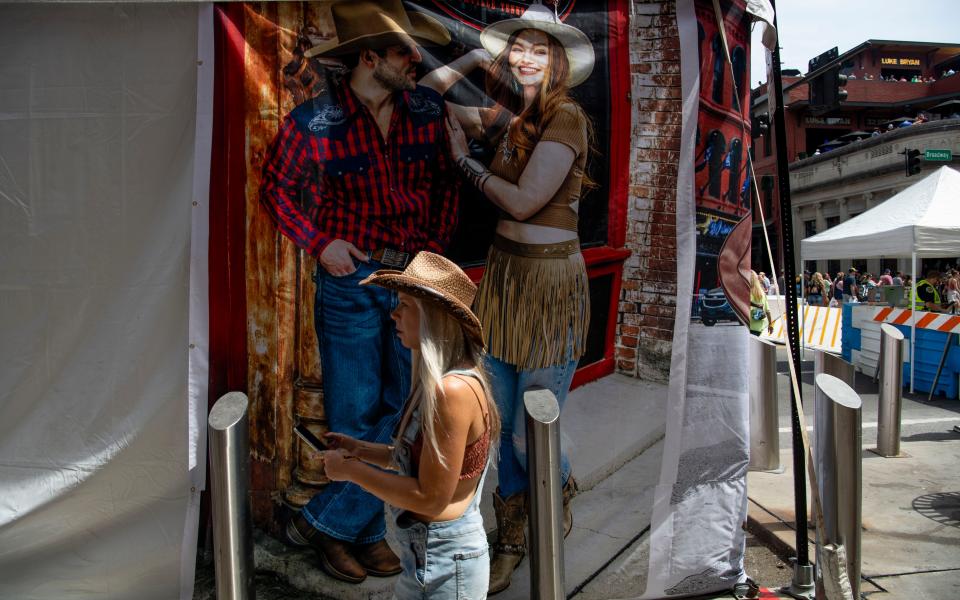Nashville street vendors are not a blight to the city; they are entrepreneurs | Opinion
Sidewalk vending is now prohibited along the main corridors of downtown Nashville at the request of Mayor John Cooper, who referred to these micro-entrepreneurs as a “blight.”
Not only will this prohibition hamper job opportunities and economic mobility for Nashvillians, but it will also impose a range of predictable adverse consequences on local residents and tourists visiting the Music City.
While this exodus of street vendors may be good news for restaurants and stores in the entertainment district, who will no longer have to deal with their competition, it will destroy the livelihoods of 250 full-time and 500 seasonal vendors, with the threat of a recession looming large.
This is especially unfortunate given that street vending is one of the few avenues for people with limited resources to achieve the American Dream of running their own business.
Street vending offers unique job opportunities to the marginalized — folks equipped with little more than the determination to succeed.
Why would you want to ban Tennesseans from taking this type of initiative?
Hear more Tennessee Voices: Get the weekly opinion newsletter for insightful and thought provoking columns.
The prohibition threatens price hikes
The effects of this restriction will also harm Nashvillians and tourists that flock to the entertainment area for a night out.

These street vendors sell a variety of things, including non-alcoholic beverages, snacks, souvenirs, and CBD oil.
Visitors clearly have a desire for these wares conveniently offered by street vendors; otherwise, there would be no need to ban vendors from selling them!
If street vendors are banned, there will be less competition, which will likely cause the prices of similar goods sold by brick-and-mortar restaurants to go up. That’s the last thing we need on top of record levels of inflation.
Visitors may also expect finding certain products to be less convenient, requiring lengthier wait periods.
Imagine parched tourists fighting through a beer-drinking crowd in a honky-tonk on a hot evening just to get some much-needed hydration that a street vendor could have handed them on the spot.
Sign up for Latino Tennessee Voices newsletter: Read compelling stories for and with the Latino community in Tennessee.
Sign up for Black Tennessee Voices newsletter: Read compelling columns by Black writers from across Tennessee.

Your state. Your stories. Support more reporting like this.
A subscription gives you unlimited access to stories across Tennessee that make a difference in your life and the lives of those around you. Click here to become a subscriber.
This move will fuel the underground market
One of the most basic lessons of economics is that when you ban something that consumers want, you usually push the market underground.

That is exactly what happened in California. If vendors try to operate illegally in the entertainment district, anticipate enforcement of this rule to divert valuable public safety resources away from dealing with far more serious dangers to safety than workers selling water bottles and snacks to tourists.
Worse still, underground vendors pose a far higher risk to consumers because it makes it easier for scammers to enter the market.
Just like the recent regulation of party vehicles and the football stadium boondoggle, this appears to be another case of local political leaders in Nashville pandering to influential special interest groups at the expense of ordinary citizens and the economic growth of our region.

They expect this will boost their re-election chances because ordinary citizens will not be able to discern the relationship between prohibiting street vending and its predictable consequences.
There’s nothing wrong with entrepreneurial street vendors. The real blight in Nashville is the political games politicians play when there are Nashvillian livelihoods at stake.
Gabriel F. Benzecry is a Ph.D. Fellow in Economics with the Political Economy Research Institute at Middle Tennessee State University. Daniel J. Smith is the director of the Political Economy Research Institute at Middle Tennessee State University and professor of economics at the Jones College of Business. Twitter: @smithdanj1.
This article originally appeared on Nashville Tennessean: Nashville street vendors are not blight; they are entrepreneurs

